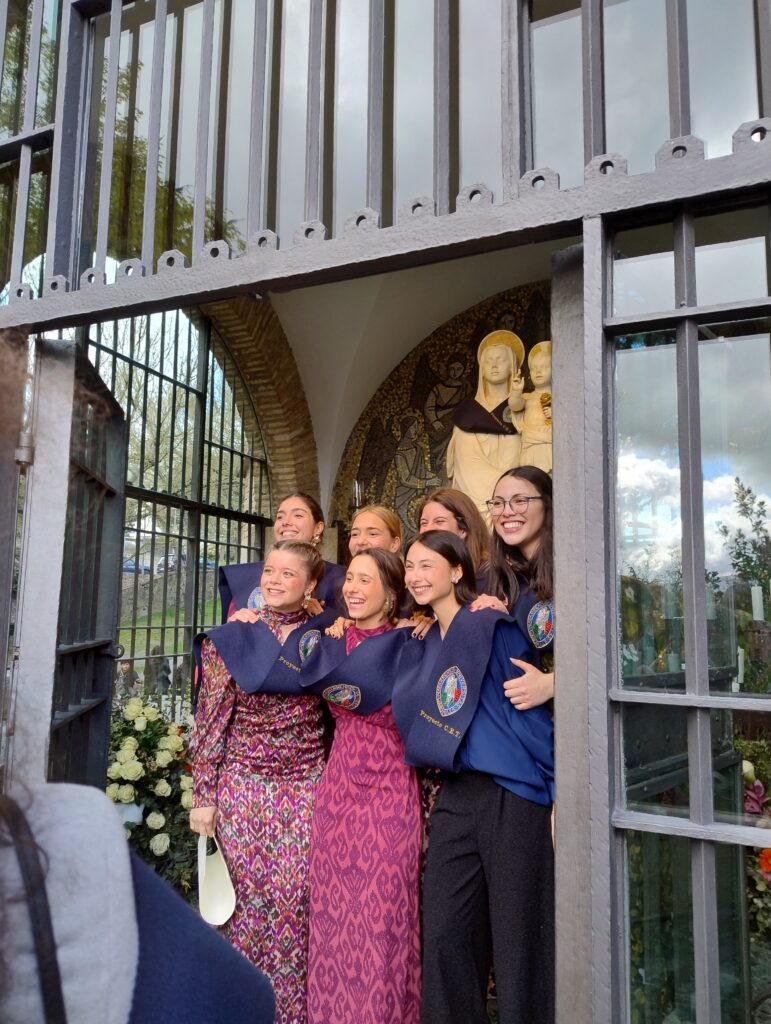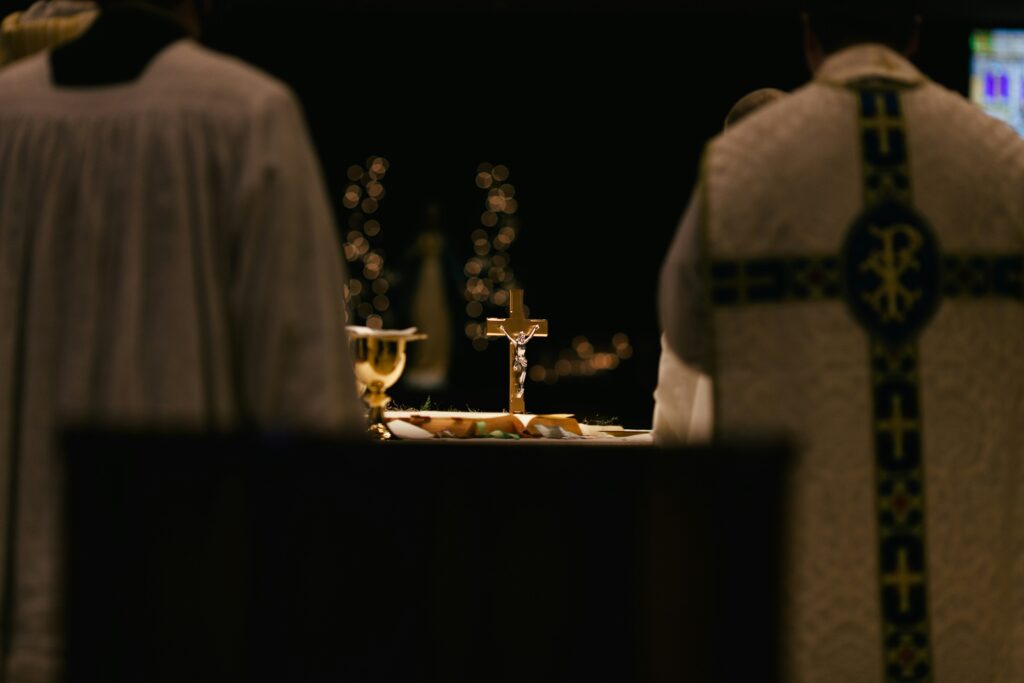Lessons from God at Christmas
Our materialistic, mercantilist, and consumerist society has manipulated and drained our principal celebrations worldwide. Commemorations are reduced to the game of supply and demand, of buying and selling, and the theme and meaning of important dates and their symbols (e.g., lights, trees, music, nativity scenes, etc.) have been relegated to our wallets or worse, ignored […]

Our materialistic, mercantilist, and consumerist society has manipulated and drained our principal celebrations worldwide. Commemorations are reduced to the game of supply and demand, of buying and selling, and the theme and meaning of important dates and their symbols (e.g., lights, trees, music, nativity scenes, etc.) have been relegated to our wallets or worse, ignored or forgotten. We end up sending messages, buying, selling, traveling, decorating, debuting, and giving gifts without knowing why we are celebrating or vacationing.
As Christmas approaches this year, I will recall, in the brevity of these lines, the great theological themes that this celebration contains for Christians and all humanity, as well as the scope, meaning, and repercussions that its symbols and theme can have for the life project of every human being and our world today.
At Christmas, we remember the birth and birthday of Jesus of Nazareth. All the joy and festive symbolism of Christmas traces its origins to the birth of a Child in a manger in Bethlehem. The central theme of Christmas is the figure of the Baby Jesus.
In the words and deeds of Jesus of Nazareth, Christians discover and confess the revelation of God and the revelation of man; the revelation of the humanity of God, and the manifestation of the divine and good in man. Jesus reveals to us the plan God has for man and the plan that every man must carry out in search of salvation, happiness, abundant life, or eternal life.
Because of his significance to humanity, Jesus of Nazareth divides our story into two parts. From his birth, the years of human history are counted “before Christ” or “after Christ.”
Jesus of Nazareth tells us what God is like
No one has seen God. Christians believe and confess – as it is written in the New Testament – that “whoever has seen Him has seen the Father” (Jn 14:8-9). All the deeds and words of Jesus of Nazareth reveal to us a God who is a good Creator and Father, who desires good and happiness for all his children, without discrimination or punishment, without vengeance or jealousy on the part of man. He is a God who does not condemn and offers forgiveness. A God who, as a good Father, does not look at exteriority or appearances, but looks at the heart and intentions of man. He is a God who – in Jesus – always takes the side of man and the human, especially of the weak, the last, the marginalized, and the “discarded.” He is a God who does not want sacrifices or burnt offerings, but compassionate love among his children.
Christmas means that – in the Child of the manger, Emmanuel – God is with and for us, championing humanity, life, and dignity. In the Child in the manger, God champions life over death, and the birth in the manger reminds us that God’s ways are not ours, nor are his thoughts. God’s logic is distinct from the world’s (cf. Mk 8:27-35).
Jesus of Nazareth tells us what man is like
The life and work of Jesus tell us about the plan for man that God has for every man. With his life, Jesus tells us what God wants and what He does not want from human beings. In Jesus of Nazareth, we discover ourselves to be children of the same God-Father and, therefore, all brothers and sisters, without distinction to one another.
The truth and happiness of every man consists in living as a child of God and brother of all. For this reason, the one new commandment of Jesus of Nazareth, for his disciples of all time, is to “love one another as God himself loves us” (Jn 13:34).
Jesus invites us all to live his life: free from fear, ambition, violence, and greed. He invites us to free ourselves from hatred and vengeance, to live free from flattery and attachment to material riches, selfishness and lies, pride and hypocrisy, etc. Jesus invites us to love and to manifest fraternal love in forgiveness, truth, justice, compassion, and service.
Today, many do not know the Good News (gospel) of
. And many, knowing Jesus Christ, live by turning their backs on his teachings, following the criteria of the world and not the logic of God. Many want a Christmas without Christ and a life without God. But Christmas refuses to die, and God, Emmanuel, persistently wants to be with us so that we can be with Him.
In our current global context, we urgently need to re-commemorate, that is, to remember the meaning of Christmas and the person of Jesus Christ for man and for all men.
Building a world without God’s sovereignty and love leads us into chaos. Dispensing with God as Father means that we do not live as sons and daughters but – proudly – as lords of all. Without God the Father, revealed in Jesus Christ, we no longer have any reason to live fraternally. Life in society becomes a macabre game of crushing power, rivalries, competitions, violence, destruction, wars, and death.
From our primitive caves to our current reality, man has progressed in the sophistication of weapons that kill more and better, which – compared to our first ancestors – makes us more savage beings, more violent, bloodthirsty, cruel, and inhumane. We may ask ourselves whether our vaunted material progress corresponds, at the same time and in the same measures and proportions, to our human and spiritual progress.
Inequality, corruption, injustice, violence, and so many forms of death in today’s world threaten the fundamental meaning of Christmas because every attack on human life is an attack on the life born and celebrated at Christmas.
Let us celebrate Christmas. Let us celebrate the God – through the Little Child in the manger – who loves us. Let us ask ourselves if the world we build is a world of love of all for all. Let us ask ourselves if there is truth and meaning in our celebration of Christmas. Let us ask ourselves – finally – if we are the kind of man and humanity that God wants from us and that he reveals to us in the fragile, tender, and defenseless Child of Christmas.
Mario J. Paredes, Member of the International Board of Directors of the International Academy of Catholic Leaders
 (EN)
(EN)
 (ES)
(ES)
 (IT)
(IT)





